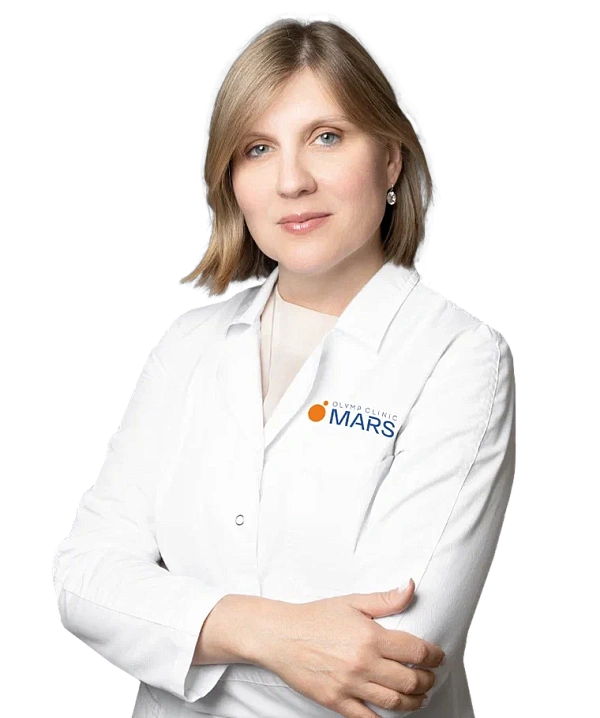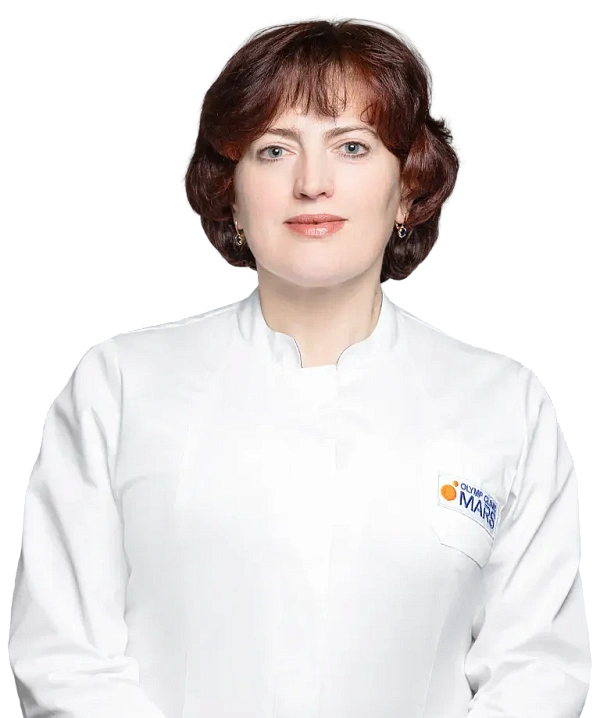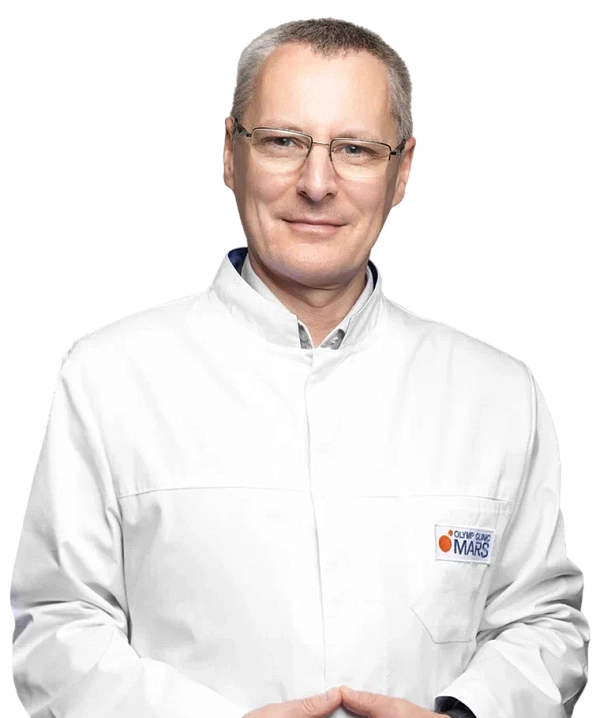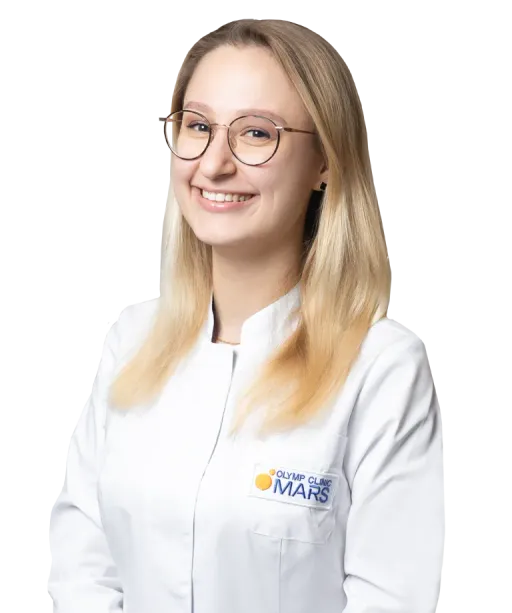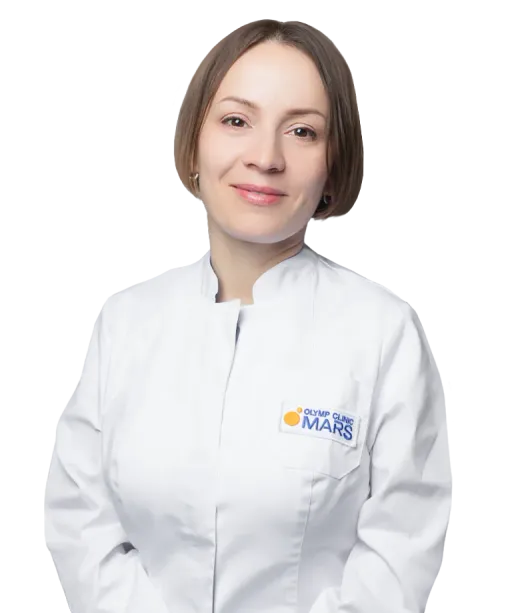Regushevskaya Darya Viktorovna
Candidate of Medical Sciences, Cardiologist
Patients
from 18 yearsLanguages
English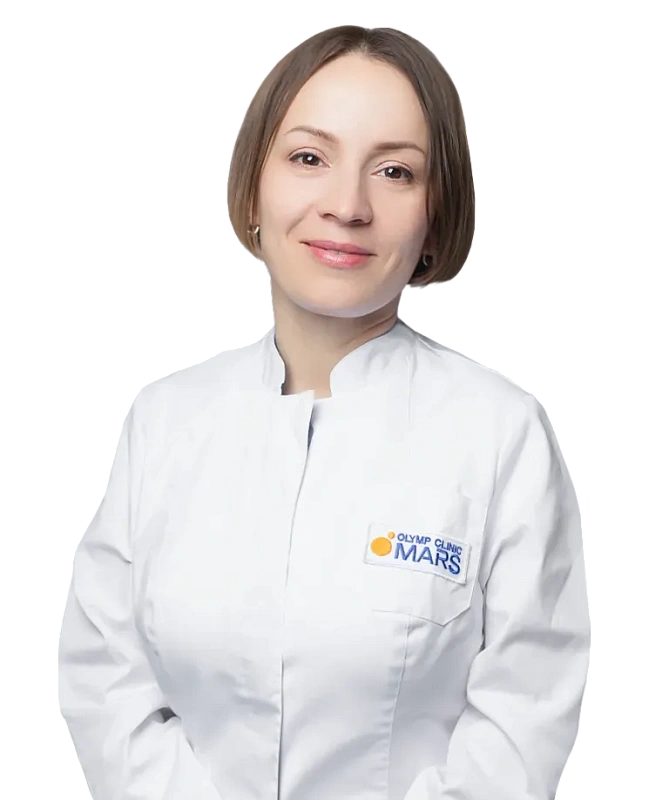
Dr. Regushevskaya conducts cardiologic outpatient appointments, assesses cardiovascular risks in healthy people, performs stress tests (bicycle ergometry), and provides all types of cardiovascular prevention.
Start of the career: 2009
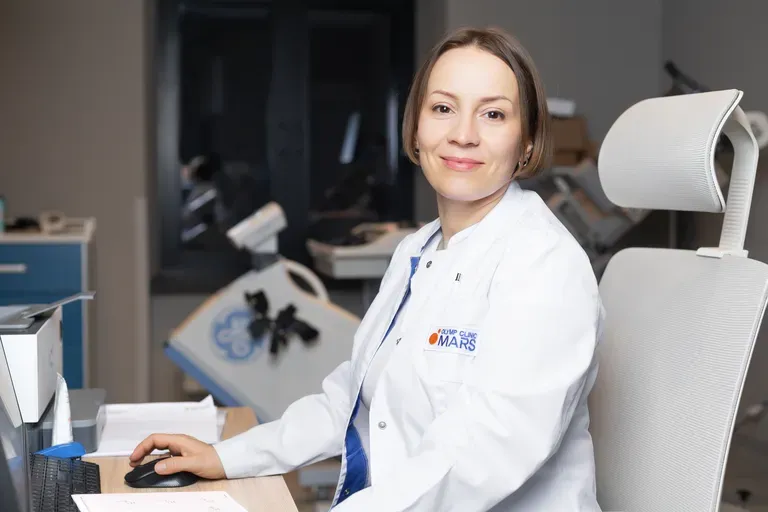
Education and qualifications
Certification in Cardiology
Pirogov Russian National Research Medical University
Certification in Cardiology Functional Diagnostics
Pirogov Russian National Research Medical University
Certification in Cardiology
Russian Medical Academy of Continuing Professional Education of the Ministry of Health of the Russian Federation
Head of the Office of Secondary Prevention of Cardiovascular Diseases, Associate Professor of the Department of Interventional Cardiology and Cardiac Rehabilitation of the Russian National Research Medical University named after N. I. Pirogov
Regular participation in Russian and foreign conferences
“Man and Medicine”, Russian Congress on Atherosclerosis and others.
More than 20 publications
Freedom of active life!
Soon your achievements will become your habit.

Technologies that work for your future
We carefully choose each device that will be used in working with the patient: from an MRI scan with 4D imaging to a CT scanner with accurate 3D model construction. In the operating unit, specialists also use the most advanced solutions — in emergency situations, in case of injuries and for solving complex surgical tasks. Our complex of high-tech equipment from the world's most reputable manufacturers allows patients to use all the achievements of modern medicine and get the best diagnostic and treatment results.
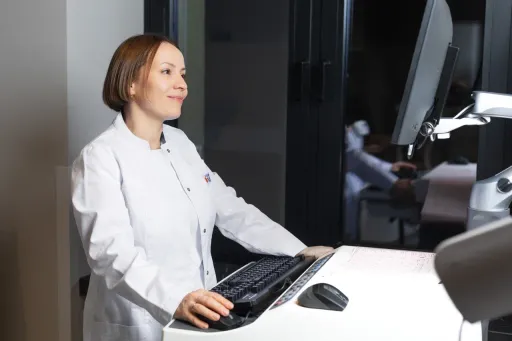
Attention that heals
We know that a warm human attitude is just as important for recovery as high-quality equipment. From the very first minutes in the clinic, you will be surrounded by a team that sincerely cares about each patient. Our doctors are the best in their fields, but not only because of their education and experience, but also because of their sensitivity: they listen attentively, explain all stages of treatment and are always supportive. From the friendly receptionist to the professor in the operating room, all our specialists work together to make the patient feel in safe hands.
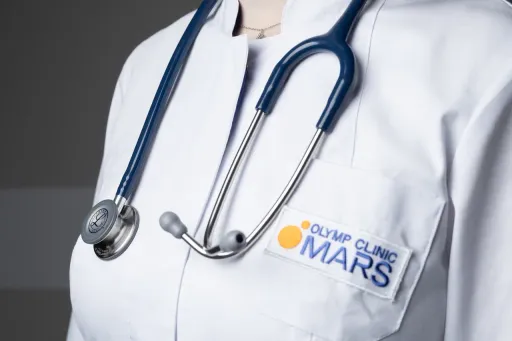
Frequently Asked Questions
Do I need to see a cardiologist if my heart doesn't hurt and there are no symptoms of heart disease?
Doctor: Regushevskaya Darya Viktorovna
Who is shown a preventive cardiologist appointment?
What will you get as a result of preventive intake?
What will you get as a result of preventive intake?
Doctor: Regushevskaya Darya Viktorovna
Didn't find an answer to your question?
You can describe your problem in detail and ask a question to the doctor. He will answer you and help you find a solution
Specialists in this department
Find a SpecialistCandidate of Medical Sciences. A cardiologist. Head of the Cardiology Department.
Cardiologist, doctor of functional diagnostics
General Practitioner, doctor of functional diagnostics
Candidate of Medical Sciences, Cardiologist
